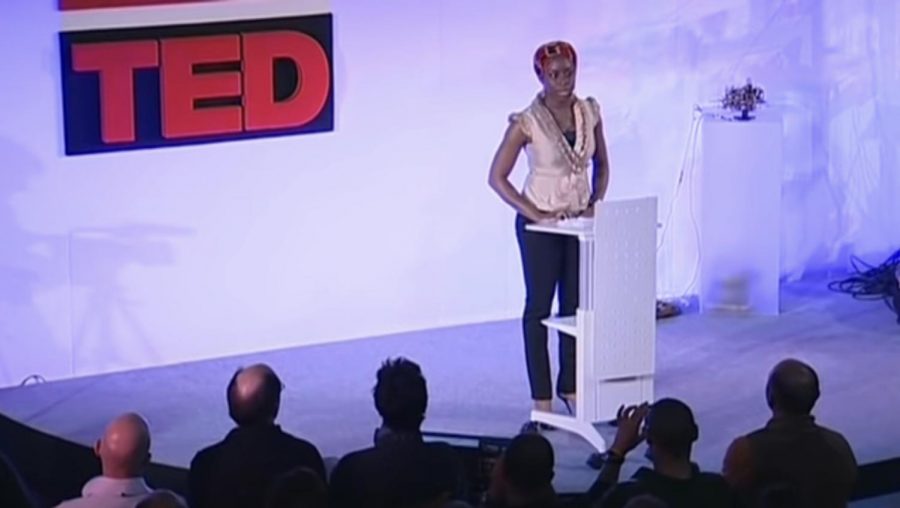The Danger of a Single Story
September 14, 2021
Today’s world is one of the most volatile times in history. A single comment can cause mass uproar and chaos.
One major example of this is masks. During the pandemic if you weren’t wearing a mask, you were assumed to be careless for others’ safety, but if you did wear a mask, you were conforming to the masses.
No one ever thought about the reasons behind others’ choices. Maybe the one not wearing a mask had a medical condition that did not allow them to wear one, and maybe the person wearing the mask had a family member that was immunocompromised.
Not many people look past these glances and into the person behind them. The lack of compassion and feeling we have towards others is a large part of the reason that tensions are so high right now.
We shouldn’t see someone as one characteristic. A student isn’t their grades. A celebrity isn’t their fame. A politician isn’t their policies. We are all complex and different, but most of all we are human. It is our shared human connection that should bring us together.
The student that we may look at as unintelligent because of their grades could be working so hard that they don’t have time for school. The celebrity that has what seems like a wonderful life that we are all jealous of could be dealing with crippling mental illness. The politician that everyone seems to hate could be forced into these policies.
When we only see someone as their single story we become a part of why the world is wrong. We fuel the hate, misinformation, and pure ignorance that seems to thrive today.
One story does not define a person, culture, or experience. High school is always said to be one of the best times in a person’s life. For the student who deals with bullying, bad grades, and uncaring teachers, high school hasn’t been the time of their life.
In fact, it could be the opposite. The feeling of utter hopelessness that a person could feel from a single story is what makes them dangerous.
The single story of cultures is a major part of why our world is broken. A woman explains her own experience with single stories in this TedTalk.
A Nigerian woman named Chimamanda Ngozi Adichie shared her stories about when she experienced single stories. Growing up, she was in the middle class of her country.
She moved to the US for college. Her roommate was very surprised that she was not the stereotype of Africa.
In reality, Chimamanda was like her and listened to the same music.
She felt very patronized that her roommate thought that she was to be pitied since she was from Africa.
Stories like these are not uncommon, and it is part of why we have so many problems today.
Not giving others single stories is important, but not giving yourself a single story is also important. Do not let one comment or one opinion define who you think you are.
You are not your looks. You are not your mental illness. You are not your obstacles.
If we all just looked past our first glances, what would our world look like? Our country might not be healed completely, but what if we were less divided?
Look at people for who they actually are, and not what everyone else sees. There is no single story that defines a person and there never will be.




